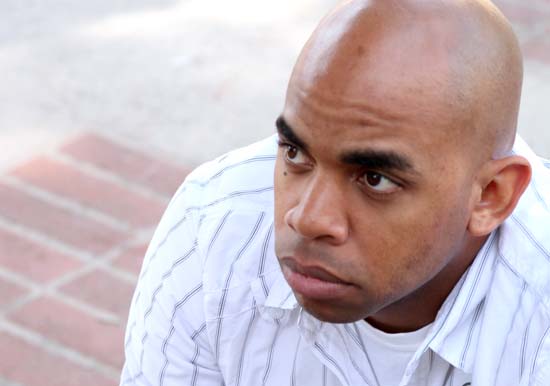This Veterans Day, Kyler Richie, Mike Stajura and Will Hamilton are among the few UCLA students who will experience the Nov. 11 holiday with a different perspective.
Student veterans on campus are included among those recognized across the nation on Veterans Day. However, at one point or another, these veterans have had to learn to adjust to student life. Organizations like the Veterans Resource Office are in place to help the transition process for veterans.
“The VRO is set up to help incoming and current student veterans resolve any administrative issues they may have,” said Hamilton, a staff sergeant in the 311th Support Command (Expeditionary) Army reserves and a fourth-year Latin American studies and history student.
However, even with organizations set up to facilitate the process of transition, student veterans still encounter some difficulties.
“Time management, … finding the right balance between how much study time you need and how much time you can spend on other outside activities. I think that’s probably the No. 1 challenge students have,” said Victoria Sanelli, a management service officer who serves as a liaison between the Army and UCLA.
As veterans learn to adjust to student life, their experiences distinguish them from civilians with no military involvement.
“I think that most people in America, who don’t have direct military experience, perceive military service members like in one day or another … either they over-glorify them … or on the other side they sort of go the other direction and focus on the negative things,” said Mike Stajura, a doctoral student in public health and a former captain in the Army who served in the Infantry and Military Police. “The reality is, it’s both and neither”
As a senior airman in the United States Air Force and a third-year African American studies student, Richie holds the title of student veteran. Despite this recognition, he said he places all emphasis of respect toward the servicemen who came before him.
“The older veterans that have put in more time in service than I, … those are the people I look up to,” Richie said.
Richie’s respect for the older generations of servicemen is no surprise once his family background is understood.
His grandfather was a Tuskegee Airman pilot who served in World War II, and his stepfather is an Army veteran of the Vietnam War. Richie’s family history in the service greatly influenced him in his decision to enlist, he said.
“They had an impact on my life. … I had them to look up to,” he said. “A lot of the structure and discipline in which they lived their lives was kind of a hold over from what they learned in the service.”
The distinction between experienced combat and non-combat veterans also surfaces among servicemen.
“(It) feels different for me because, even though I’m technically a veteran, I’m not a combat veteran who shares the experience of the people coming back from Iraq and Afghanistan right now. … I don’t feel like I have a common experience with them,” Stajura said. “I don’t want to take anything away from them.”
While an unspoken distinction among veterans themselves demonstrates how they honor and respect one another on occasions like Veterans Day, “just wearing the uniform and taking on the responsibility that comes along with it takes a lot and says a lot,” Richie said.
